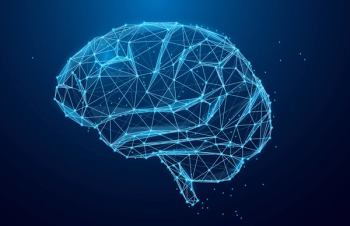
Research Identifies Key Differences Between LSD and Psilocybin
Drug comparison has significant implications for dose- and substance-dependence.
A study comparing the acute effects of lysergic acid diethylamide (LSD) and psilocybin in healthy participants found that the primary differences between the 2 are dose-, rather than substance-dependent.
In the study—a double-blind, randomized, placebo-controlled, crossover design—investigators evaluated 28 healthy individuals during 5 sessions, each 10 days apart and lasting 25 hours. In each session, participants were given LSD (100 and 200 µg), psilocybin (15 and 30 mg), or placebo, with outcome measures including self-rating scales for subjective and autonomic effects, adverse effects, and effect durations, plus plasma levels of brain-derived neurotrophic factor (BDNF), oxytocin, cortisol, prolactin, and pharmacokinetics.1
Results showed that the 200 μg LSD dose received higher anxiety and ego-dissolution ratings, as well as control and cognition impairments, compared with the 100 μg LSD dose. The 200 μg LSD dose also significantly increased ratings of ineffability compared with the 30 mg dose of psilocybin. The investigators noted that both LSD doses demonstrated longer effect durations than the psilocybin doses, although both the LSD doses and the high psilocybin dose produced similar quantitative and qualitative subjective effects in the participants. Overall, investigators reported that these findings suggest that 20 mg psilocybin is equivalent to 100 μg LSD, and 30 mg psilocybin is equivalent to 150 μg LSD.2
“The results in this publication continue to expand our knowledge of the differences between LSD and psilocybin with regard to their acute effects, similarities, and dose equivalence,” said Matthias Liechti, MD, professor of clinical pharmacology and internal medicine at University Hospital Basel, and principal investigator on the study, in a press release. “Although both substances are used as pharmacological tools, there are no modern studies investigating and directly comparing the acute effects of these substances within the same clinical study, using well-defined doses and validated psychometric tools.”
As there is a lack of contemporary clinical studies comparing the acute effects of LSD and psilocybin, the findings of this study can potentially help clinicians with dosing for psychiatric and neurologic disorders, designing trials, and evaluating these psychedelics for therapeutic utility in future research.1
“LSD and psilocybin have recently become promising candidates for the treatment of various psychiatric and neurologic disorders, and thus a deeper understanding of their differential subjective effects in humans is needed,” said Miri Halperin Wernli, PhD, MindMed executive president, in a press release. “This study brings us one step closer to maximizing the therapeutic potential of these molecules, by providing valuable dose-finding context and enabling more direct comparisons when interpreting clinical results.”
References
1.
2. Holze F, Ley L, Müller F, et al.
Newsletter
Receive trusted psychiatric news, expert analysis, and clinical insights — subscribe today to support your practice and your patients.






